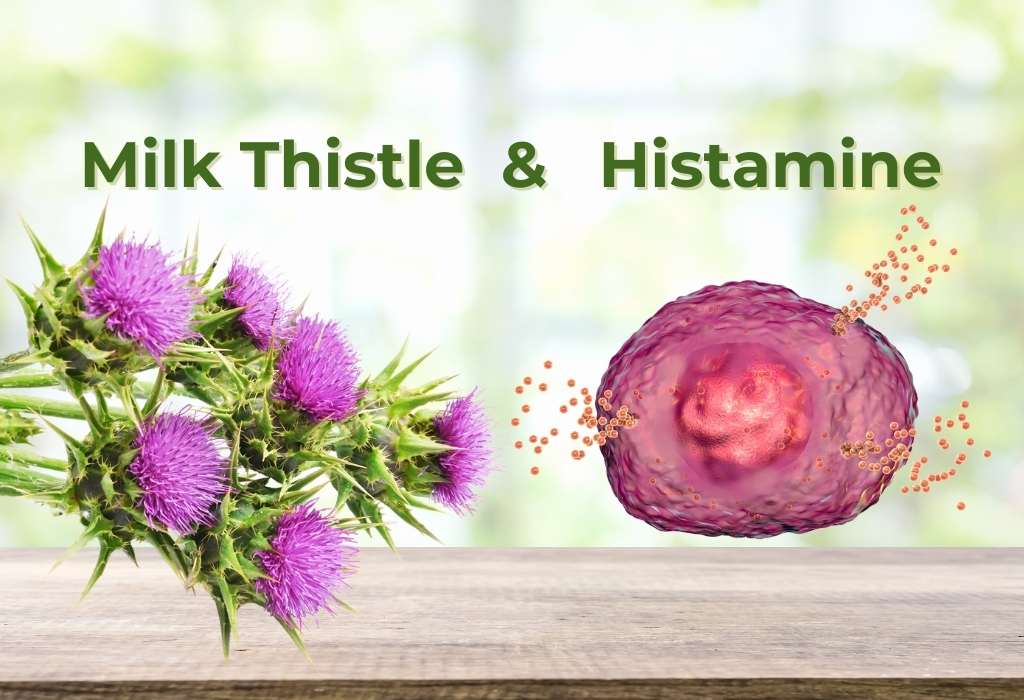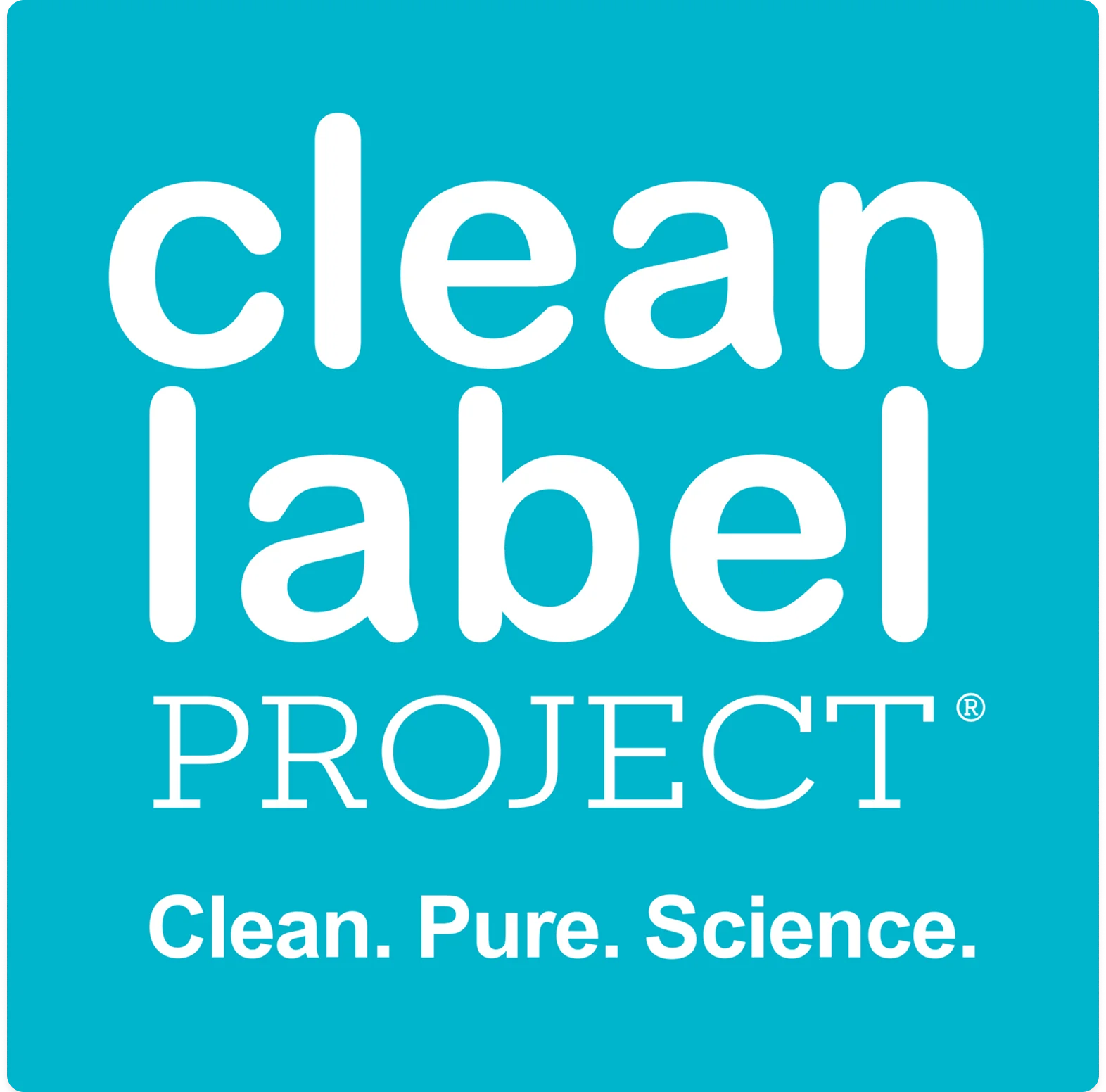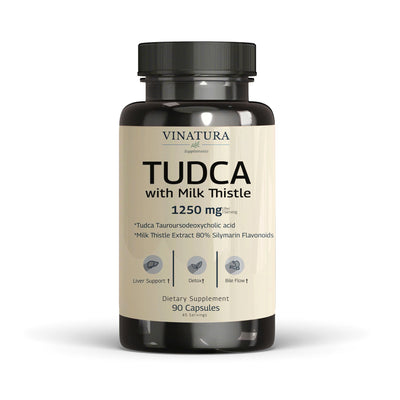
Is Milk Thistle High In Histamine?
Milk thistle is a popular plant frequently used in traditional medicine. Does it contain a high amount of histamine? The answer is no; milk thistle does not contain much histamine. On the contrary, this plant helps regulate the amount of histamine in the body.
Before exploring further, please read the disclaimer located at the end of this webpage.
Key Takeaways
- Milk Thistle is an herb used for centuries as a medicinal plant but does not contain high levels of histamine.
- Thanks to the mechanism of action of the main compounds found in milk thistle, this plant can inhibit histamine production.
- Besides its histamine-inhibiting properties, this herb offers various other health benefits, especially for liver cells.
Is Milk Thistle High In Histamine?
The answer is no. Milk thistle's compound structure contains histamine [1].
However, the amount of this substance in milk thistle is low. The plant mainly consists of flavonolignan compounds, particularly silymarin, which can reduce histamine release in the body. Therefore, Milk Thistle does not increase the histamine level in the body.
What Is Histamine?

Histamine is a natural organic compound primarily stored in the mast cells and basophils of the human body. This substance is the leading cause of allergic diseases, anaphylactic processes, and experimental allergic reactions through the mechanism of increasing histamine levels in plasma or tissue [6].
Histamine is just one of the mediators causing allergic diseases. However, it plays a significant role in indirectly causing bronchospasm, itching, inflammation, redness, rash, asthma, mucosal edema, sneezing, and other allergic symptoms.
However, in reality, histamine is not a harmful substance. It is essential in the body's immune defense against foreign substances.
How Does Histamine Work In The Human Body?
Histamine becomes active when released from mast cells and basophils and then binds to receptors in the body. This action triggers a series of biological reactions and allergic symptoms in the human body [5].
For example, if you are allergic to pollen and inhale pollen grains, or if an unfamiliar insect bites you, the pollen grains or insect saliva enter your body. The immune system recognizes these substances as foreign and releases histamine.
Histamine binds to receptors in the nasal passages or at the bite site, leading to the characteristic symptoms of an allergic reaction.
Learn more: When is the Best Time to Take Milk Thistle?
How Does Milk Thistle Impact Histamine Production?

Thanks to the main compound silymarin found in milk thistle, this plant can impact the production of histamine in various ways:
Cell Stabilization: This is the primary mechanism by which silymarin affects histamine production. Research indicates that silymarin can stabilize basophil cell membranes, thereby minimizing the release of histamine into surrounding tissues [2].
Inhibition of Histamine Production: In 2005, a study demonstrated that silymarin in milk thistle could significantly reduce the direct production of histamine. This was most evident when symptoms of itching and redness in patients were markedly alleviated after applying silymarin [2].
Intervention in Cell Pathways: By interfering with the calcium influx into cells, silybin, the main compound of silymarin, can reduce the release of histamine in the body [4].
A 2002 study evaluated the effect of silymarin on guinea pigs with bronchospasm symptoms induced by antigen irritation. The results showed that silymarin significantly reduced symptoms in the early phase of the allergic reaction [3].
Read more: Milk Thistle & Steroids: How Much Should You Take During a Cycle?
Other Benefits Of Milk Thistle

Besides the benefits mentioned above, milk thistle is also renowned for its potential health benefits:
Liver Cell Protection: Milk thistle is a miraculous herb long known for its comprehensive liver-protecting properties. It helps regenerate liver cells and improve liver function, thanks to the main compound, silymarin [7].
Digestive Support: Milk thistle also improves digestion, helping reduce gastrointestinal symptoms such as indigestion, bloating, and irritable bowel syndrome.
Antioxidant Properties: The main compound, silymarin, found in milk thistle, is a powerful antioxidant, which means this herb can protect cells from damage caused by free radicals.
Milk Thistle Side Effects And Contraindications
Side Effects: Milk thistle is a natural herb safe for long-term use, with very few reported serious side effects. Most commonly, the side effects are mild, such as nausea, diarrhea, or stomach pain due to unfamiliarity.
Contraindications: It is best not to use milk thistle with medications like hypoglycemic drugs or blood thinners.
Conclusion
Through the analyzed sections, it is evident that the histamine content in milk thistle is shallow. Unexpectedly, milk thistle also can regulate histamine levels in the body through several unique mechanisms. Additionally, this herb offers other potential benefits that help improve overall health, particularly liver health.
References
- [1] Pankaj Kumar Sahu and Shweta Sao Department of Life Science, Dr. C. V. Raman University, Kota, Bilaspur, India - Medicinal utilities of Milk thistle (Silybum marianum): A short Review
- [2] Topical treatment of atopic dermatitis by silymarin T Altaei - J Baghdad Coll Dent, 2005 https://www.iasj.net/iasj/download/a0a7cb81f8a2473a
- [3] M.Cristina Breschi, Enrica Martinotti, Filippo Apostoliti, Paola Nieri - Protective effect of silymarin in antigen challenge- and histamine-induced bronchoconstriction in in vivo guinea-pigs https://doi.org/10.1016/S0014-2999(02)01265-7
- [4] Effects of silybin on histamine release from human basophil leucocytes. A Miadonna, A Tedeschi, E Leggieri, M Lorini, M Froldi, C Zanussi First published: December 1987 https://doi.org/10.1111/j.1365-2125.1987.tb03241.x
- [5] R. Fantozzi, S. Brunelleschi, …P. F. Mannaioni - FMLP-activated neutrophils evoke histamine release from mast cells https://link.springer.com/article/10.1007/BF01988009
- [6] The role of histamine: in allergic diseases - MD Martha V. White https://doi.org/10.1016/S0091-6749(05)80223-4
- [7] 93(2), 139-143 Flora, K., Hahn, M., Rosen, H., & Benner, K. (1998) - Milk thistle (Silybum marianum): for the therapy of liver disease. American Journal of Gastroenterology, https://pubmed.ncbi.nlm.nih.gov/9468229/
Author

Product Disclaimer
Including an ingredient or study does not evaluate, endorse, or recommend any Vinatura product or any third-party product. Some ingredients discussed may not be used in any Vinatura product.
The content of the articles has not been evaluated by the Food and Drug Administration (FDA) and is not intended to promote or endorse any specific product. Any products sold on this website are not intended to diagnose, treat, cure, or prevent any disease.
Opinions and Endorsements
Any claims, statements, or opinions expressed in the articles are those of the author(s) and do not necessarily reflect the views or opinions of the manufacturers of the dietary supplement products. The products sold on this website are separate from the content of the articles and are not directly endorsed or associated with the information presented here.
Liability Disclaimer
The author(s) of the articles, website, and manufacturers of the dietary supplement products do not assume any liability for any potential consequences arising from the use of the information provided in the articles. Ingredient effects, dosages, and safety vary by individual, formulation, and context; some ingredients interact with medications or may be unsuitable during pregnancy or lactation. It is recommended that individuals consult with a qualified healthcare professional before making any dietary or lifestyle changes, including the use of dietary supplements.
Product Usage
Please refer to the product labels and packaging for specific usage instructions and guidelines for the dietary supplement products sold on this website.
Customer Support
For any concerns or questions regarding the dietary supplement products, please contact our customer support team, who will be more than happy to assist you.






Leave a Comment
Be the first to comment.
What do you think?